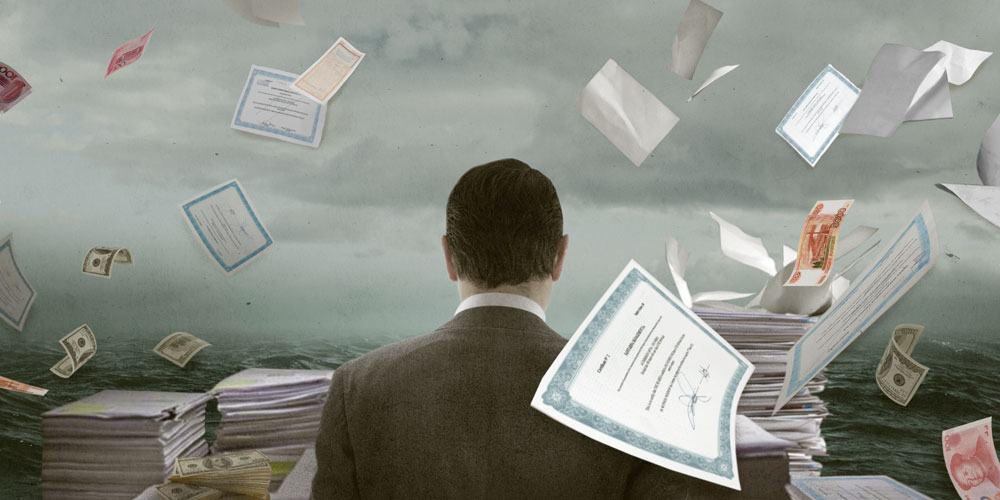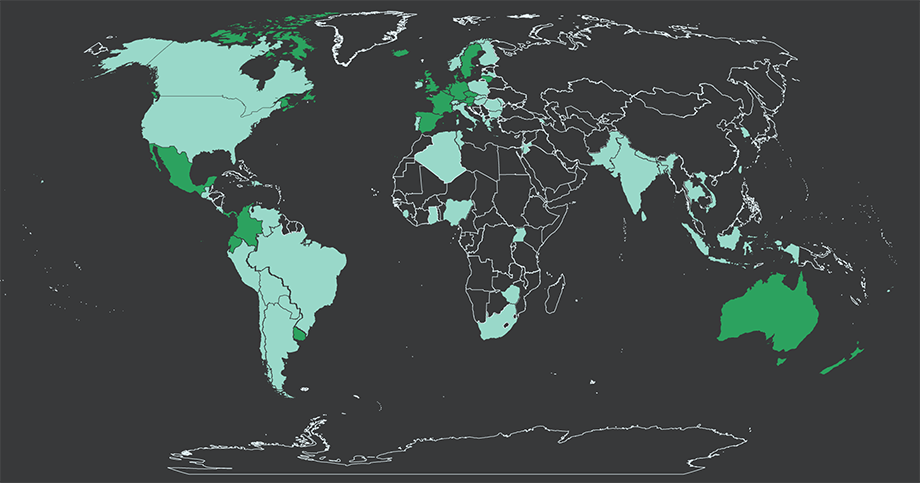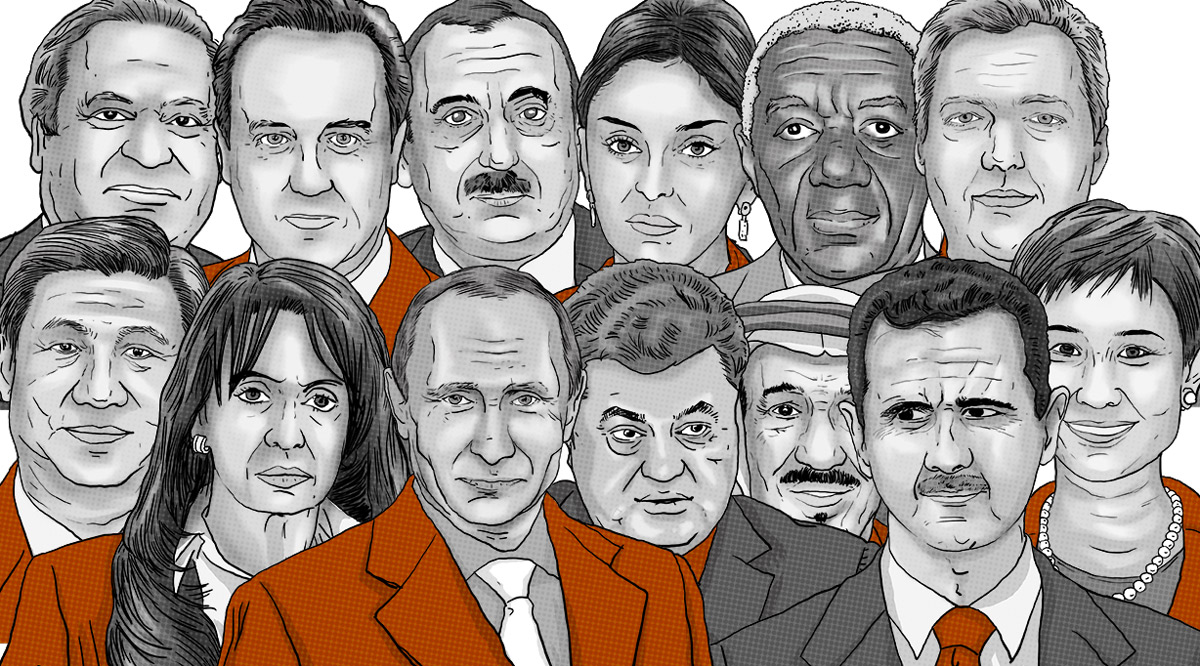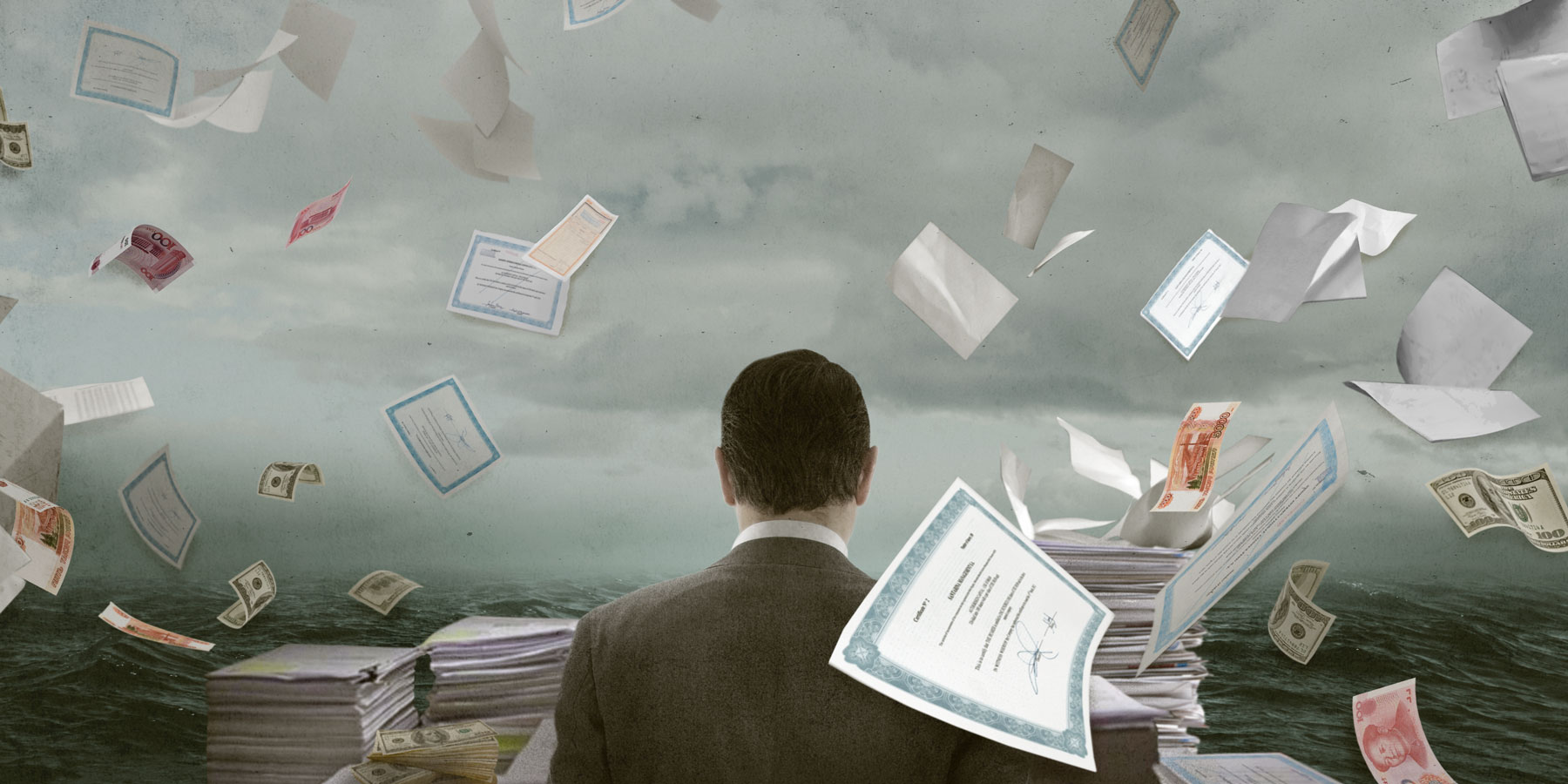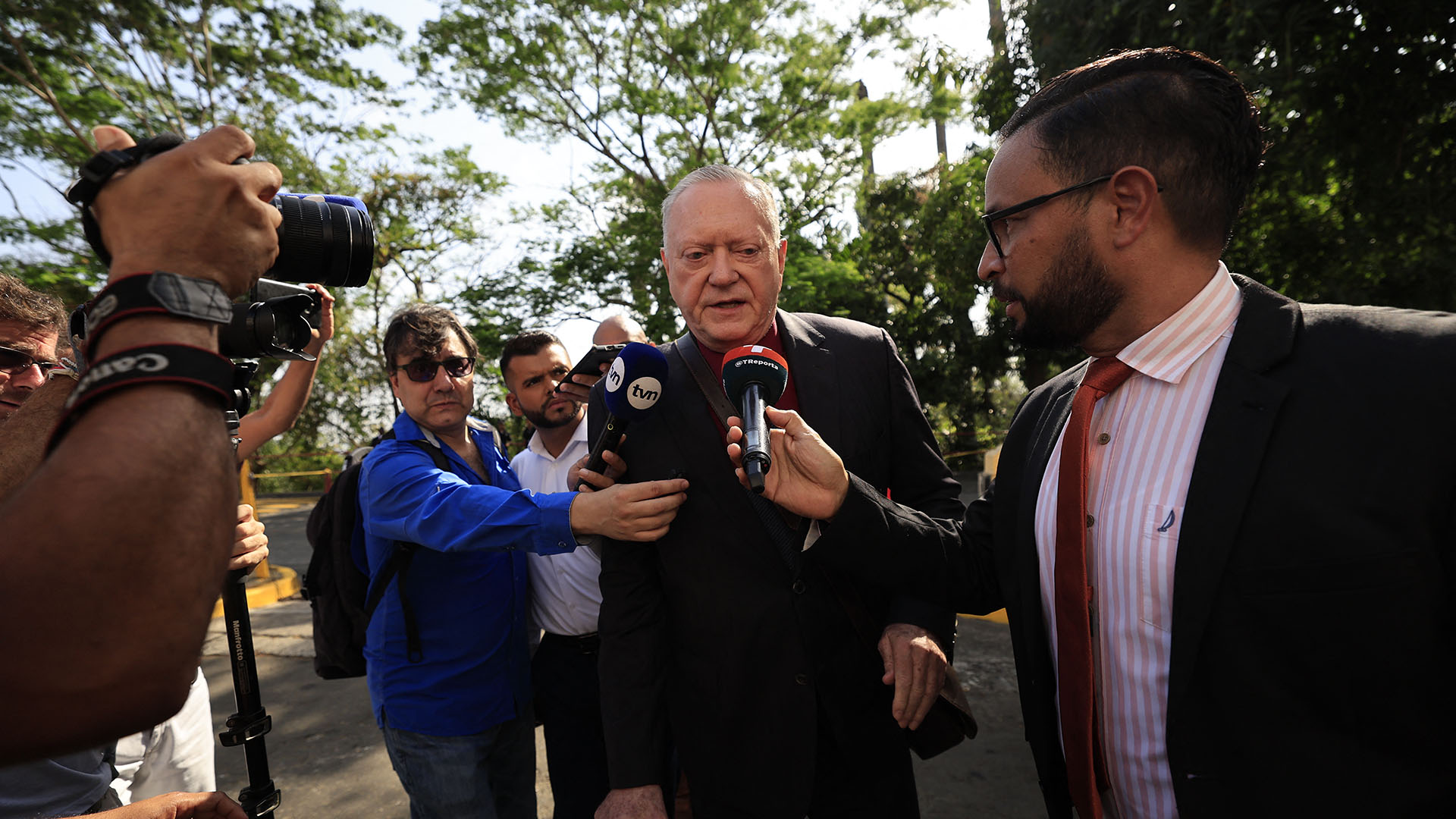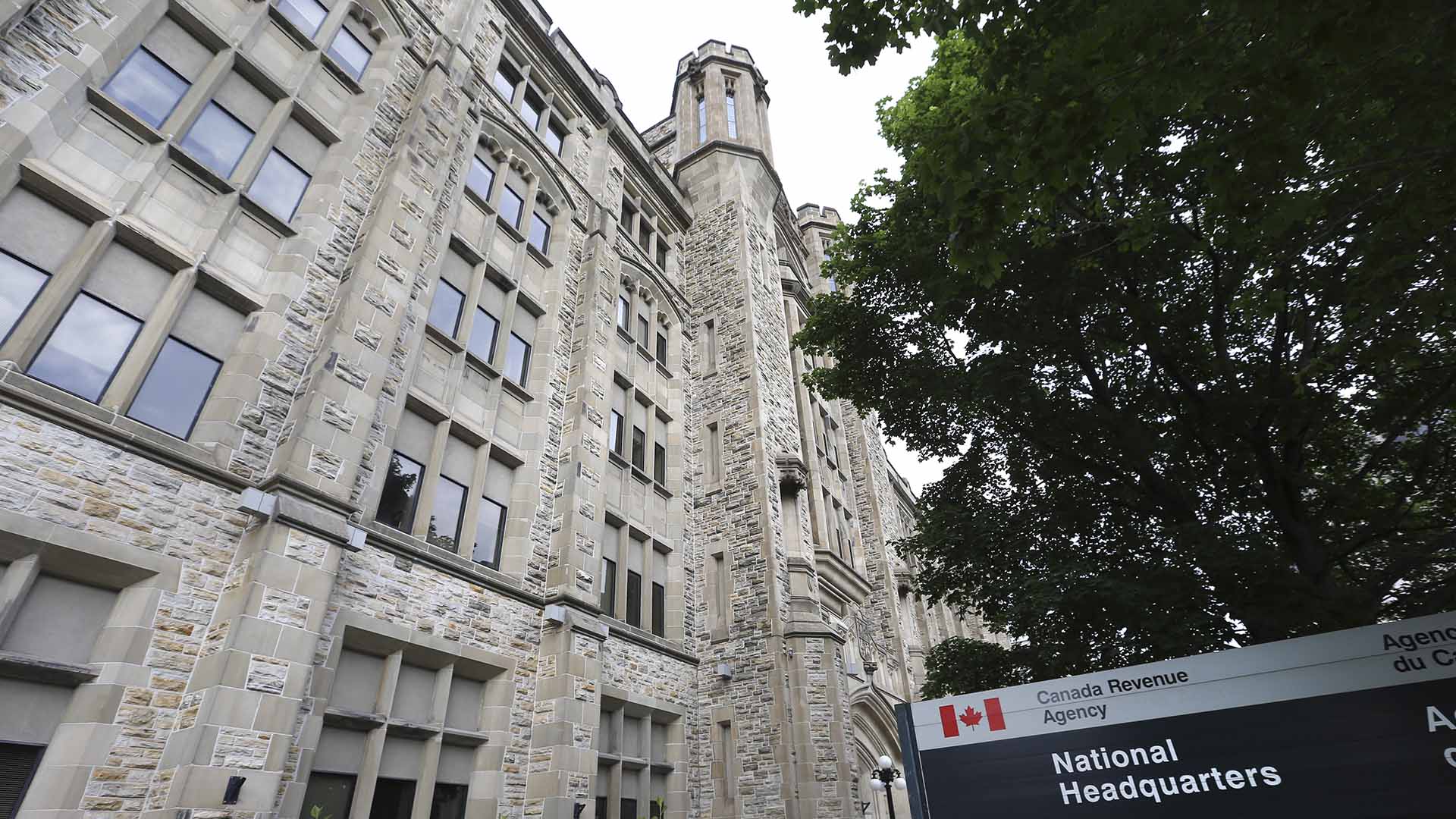UPDATED: July 2022
What is the Panama Papers?
The Panama Papers is an unprecedented investigation that reveals the offshore links of some of the world’s most prominent figures. A giant leak of more than 11.5 million financial and legal records, it exposes a system that enables crime, corruption and wrongdoing, hidden by secretive offshore companies. The leak was from the database of the world’s fourth biggest offshore law firm, Mossack Fonseca. It came from an anonymous source to the German newspaper Süddeutsche Zeitung, which shared the data with the ICIJ. The ICIJ and its partners began publishing the Panama Papers disclosures at 2 p.m. U.S. Eastern Time on April 3, 2016.
What do the Panama Papers reveal?
The Panama Papers reveal the offshore holdings of more than 140 politicians and public officials from around the world. Current and former world leaders in the data include the prime ministers of Iceland and Pakistan, the president of Ukraine, and the king of Saudi Arabia.
The law firm’s leaked internal files contained information on 214,488 offshore entities connected to people in more than 200 countries and territories. The data included emails, financial spreadsheets, passports and corporate records revealing the secret owners of bank accounts and companies in 21 outposts in the offshore system, from Nevada to the British Virgin Islands to Singapore.
Who worked on the Panama Papers?
ICIJ worked with McClatchy, the Miami Herald, German daily Süddeutsche Zeitung and more than 100 other media partners over an entire year, sifting through 11.5 million leaked files to expose the offshore holdings of world political leaders, links to global scandals, and details of the hidden financial dealings of fraudsters, drug traffickers, billionaires, celebrities, sports stars and more.
ICIJ’s data and research unit indexed, organized and analyzed the 2.6 terabytes of data that make up the leak, using collaborative platforms to communicate and share documents with journalists working in 25 languages in nearly 80 countries.
What was the impact of the Panama Papers?
From Day 1 of the Panama Papers, governments around the world traced whatever previously hidden dollars, euros, yen and other currencies they could. Countries have recouped more than $1.36 billion in unpaid taxes, fines and penalties as a result of inquiries sparked by the Panama Papers, according to ICIJ’s latest tally.
In the last two years, ten countries, including Australia, Belgium, Denmark, Germany and Italy reported recovering more than $185 million in new money as a result of Panama Papers-inspired investigations. Norway, for the first time, disclosed that it has clawed back almost $34 million. Hundreds of tax probes against individuals and companies remain open.
Why didn’t ICIJ publish all the Panama Papers files?
We are an investigative journalism organization and, as such, we report stories that are in the public interest. The Panama Papers expose significant systemic failures inside the offshore economy. They reveal how politicians, banks, criminals and sports celebrities have taken advantage of the secrecy provided by tax havens and, in some cases, broken the law. Those stories and others we are pursuing serve the public interest by bringing accountability to the offshore industry – an industry that has long operated in the shadows.
Other parts of the data are of a private nature and of no interest to the public.
ICIJ will not release personal data en masse but will continue to mine the full data with its media partners.
Will ICIJ at least publish a database of people and companies?
In early May ICIJ will release the names of the more than 214,000 offshore entities incorporated by Mossack Fonseca and the people connected to them (as beneficiaries, shareholders or directors).
The names – with links to more than 200 countries – will be added to the Offshore Leaks database (published in 2013), which already contains more than 100,000 paper companies that ICIJ obtained in a previous leak. The exact release date will be confirmed soon. Sign up to our mailing list to be the first to know.
Will ICIJ share documents from the Panama Papers with governments?
The long-standing policy of ICIJ is not to turn over such material.
The ICIJ is not an arm of law enforcement and is not an agent of the government. We are an independent reporting organization, served by and serving our members, the global investigative journalism community and the public.
Should I assume that everyone that appears in the Panama Papers is involved in tax avoidance or evasion?
No. There are legitimate reasons to create a company in an offshore jurisdiction and many people declare them to their tax authorities when that is required.
How can I join the investigation?
Once we have finished publishing a planned series of stories with our partners our attention will turn to countries where we still have investigative work to do. A number of other media organizations have reached out to us offering help and support, and we welcome these new offers of collaboration. We are vetting the requests and plan to pick a few new partners in the coming weeks.
This is not easy data to understand. It took great commitment from all of our current media partners to find stories of important public interest. ICIJ’s data unit provided training to our partners to make sure that everyone understood the intricacies of the information they were reporting on.
If you are a journalist and want to partner with us send us an email to data@icij.org.
How does ICIJ pick its reporting partners?
ICIJ is an independent network of nearly 200 investigative journalists in more than 65 countries who work together of issues of global significance. Sometimes we go to our members with an idea for a project and sometimes our members come to us with their own ideas or data. The the Panama Papers investigation, ICIJ members Bastian Obermayer and Frederik Obermaier from the German newspaper Süeddeutsche Zeitung shared the files they had obtained with ICIJ so we could organize a global investigation.
We sometimes work with journalists and media organizations that are not part of our network, for example in countries where we haven’t done work before. We vet those new partners thoroughly. What do we seek in our partners? 1) Journalists with a proven record in investigative reporting 2) Media organizations that support “slow,” deep-dive investigations 3) Journalists who are team players and are willing to share their work with other colleagues around the world 4) Generally nice people (life is short!).
How do I get in touch with ICIJ if I want to share a tip or documents?
There are a number of ways to contact ICIJ, depending on the nature of your message or the material you would like to share.
ICIJ also uses PGP encryption: our public key can be found on the MIT PGP Public Key Server (fingerprint: 986A 572D 3B95 BD42 331E 839A B532 F18C 2A17 696B); our email address is contact@icij.org.
Who funds ICIJ?
ICIJ is a non-profit organization. We rely heavily on charitable foundations and on financial support from the public. We do not take funding from governments. Without our readers’ support, we cannot exist.
Recent ICIJ funders include: Adessium Foundation, Open Society Foundations, The Sigrid Rausing Trust, The Ford Foundation, Fritt Ord Foundation and the Pulitzer Center on Crisis Reporting. We also receive support from Australian philanthropist Graeme Wood.
We welcome individual donations in support of our work.
